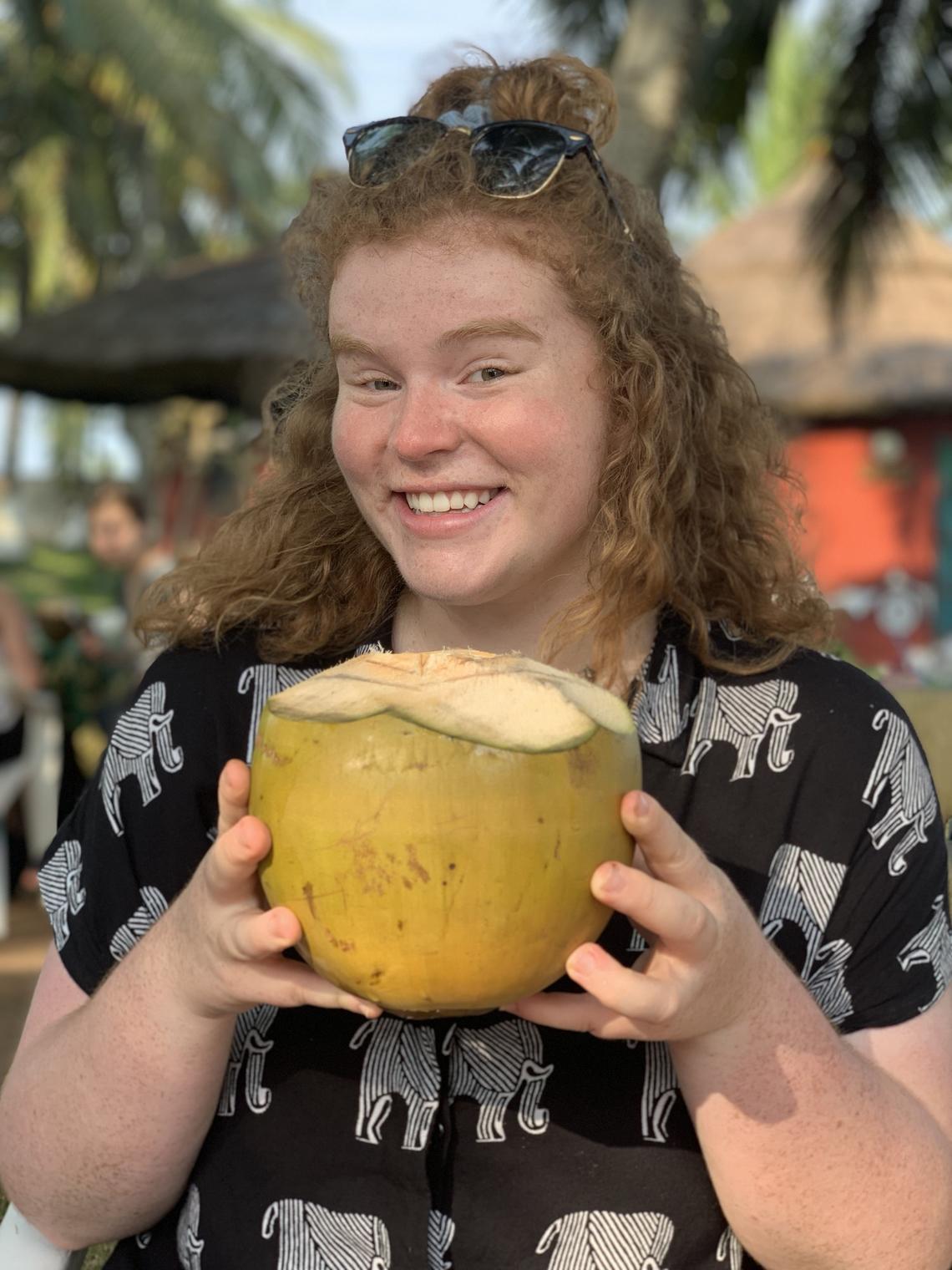Oct. 1, 2019
UCalgary undergrads discover limits of their endurance in Ghana Field School

As she and her fellow undergrads stepped off the plane in Accra, capital city of Ghana, 20-year-old Julianna Lyon felt a rush of excitement, both nervous and thrilled for the journey she was about to embark on.
A double major in Development Studies and Geography — whose studies are focused on how environmental policies are managed in developing countries — she was eager to pursue the many research opportunities Ghana had to offer her.
But she also fretted about the West African country’s unrelenting heat and she was apprehensive about the food. Would she enjoy it? How would her North Americanized stomach react to it?
These were her concerns and they were shared by most, if not all of her 17 classmates as she embarked on UCalgary’s newest field school to Ghana, led by Dr. Rita Yembilah, PhD, an instructor in the Department of Anthropology and Archaeology, which houses the university’s Development Studies program.
These were the challenges Lyon had readied herself for, as best as she could, on the month-long African study trip she took part in last May and June. But she soon learned that her real tests would be those of an academic nature, doing field research in a developing country.
Those challenges were often unexpected and they varied between each student, depending on their research topics. Among the group were developing studies, international relations, political science, economics, sociology, geography and anthropology majors.
To be sure, the journey was not an easy one, but it was also highly rewarding. “What I gained there was invaluable,” says Lyon.

Julianna Lyon, a double major in Development Studies and Geography, in Ghana.
Courtesy Julianna Lyon
As envisioned by Yembilah, who was born and raised in Ghana, the field school was designed to immerse the undergrads in the country’s culture, with a wide range of engagements at urban and rural levels. To that end, students visited both the parliament house in Accra and a variety of rural communities in the country’s north, as well as schools, farms, an irrigation project, hospitals and mines.
“If these students wish to be development practitioners anywhere in the world, there is a cultural learning that must take place,” Yembilah says. “I believed that if they had this experience of being enmeshed with the country in a research sense then they would be getting some of the experience I got growing up in Ghana and doing research there myself. It is a more authentic, well-rounded education than one can receive learning in air-conditioned rooms.”
After a month of travelling and studying in Ghana, the students were tasked with organizing and delivering a mini-conference for the local development community. Yembilah gave them two days to make the event happen. In that period, they became all too acquainted with the Ghanianism “dumsor,” which means “off-on,” used in reference to the West African country’s frequent power outages.
“The lights would go out for a second, then they’d turn back on,” says Lyon. “Dumsor was a great metaphor for the whole trip, I found. Things are bound to wrong but they would always turn back around, eventually.” The electrical issues also made the wi-fi inconsistent and all of this created hurdles as the students scrambled to organize their conference.
“We were so dependent on technology,” Lyon recalls. “We didn’t think using Google docs would be a problem. Then we learned it was a problem because it’s all dependent on the Internet, which we couldn’t count on.”

Northern village in Ghana.
Courtesy Rita Yembilah
Despite considerable roadblocks, the students put together a successful conference, attracting more than 40 attendees. “I was astounded by what they were able to do,” says Yembilah. “It was professionally done and I was just beaming, so proud of them.” For her part, Lyon was excited to present her research at the conference.
The undergrads were thrilled to pursue their varied research interests on a number of fronts. Lyon spoke with members of parliament on the topic of waste management and visited the massive Akosombo Dam on the Volta River, to talk with engineers and policy-makers about the environmental problems associated with hydroelectricity. She and her classmates also interviewed farmers, which presented a challenge as reliable translators were needed and not always easy to find.
By the end of the epic trek the undergrads, whom Yembilah says “are now my 18 children,” came away having had the experience of a lifetime. “It wasn’t always a pleasant experience,” she adds. “These students were discovering the limits of their endurance in ways they had not considered before. But I watched them grow immeasurably in so many ways.”
Lyon agrees: “I know I came home a much stronger person. Going in, I was very nervous about the heat and the food, but once you’re put into a situation, you learn to adapt. And learning to be a more adaptable person will help with anything I do for the rest of my life.”




